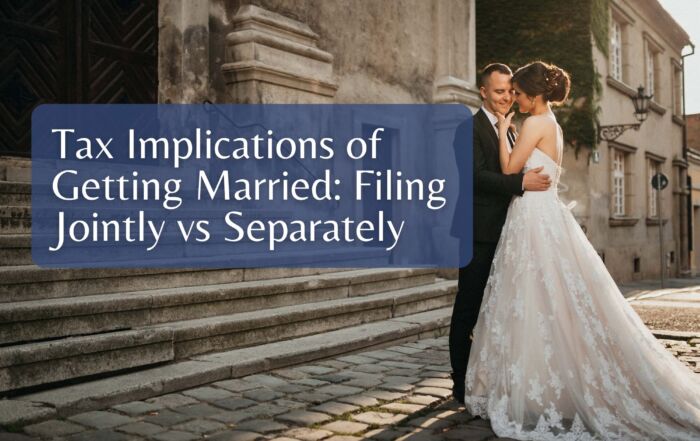
Secure Act 2.0: What the New Legislation Means for You
The “securing a strong retirement act of 2022” was passed right at the very end of 2022. You might have heard of it as, Secure Act 2.0. What could this new legislation mean for you?
401K Contribution Changes
Beginning in 2025, with exceptions for some small businesses, the government will require 401K and 403B plans to automatically enroll eligible participants starting at a minimum of at least 3% of their income going into the 401K. This percentage will be increased annually to at least 10% if not more, but not more than 15%. In this case, if you get a job at a company and don’t sign up for the 401K plan as soon as you’re eligible for it, the company would be required to automatically pull money from your paycheck to deposit into your 401k plan. It’d start at a minimum of three percent and then probably have an increase of 1% or 2% per year until you get to 10% or 15%. Employees do have the chance to opt-out, though.
Penalty-free Distributions for 401K and 403B
The government is going to roll out beginning in 2024, 401K plans or 403B plans with penalty-free distributions of up to one thousand dollars per year. This will not be subject to the usual 10% tax. Therefore, you would pay income tax, but you’re not going to pay the 10% penalty. However, if you do not repay the distribution within a certain time frame, you’ll have to wait three years before being allowed to take another emergency distribution.
Student Loan Payments and 401K Savings
Additionally, if an employee has a student loan and is not able to save money, employers must now match dollars into the employee’s 401k plan as long as the employee is paying their student loan payments. To exemplify, let’s say you pay U$500 a month in student loans. Which prevents you from contributing to your 401K plan, your employer is then required to consider the U$500 that you’re paying towards your student loans, as if you were contributing it to the 401K plan, even though you’re not. Consequently, they would match that in the 401K plan. This measure will be taking place in 2024.
Required Minimum Distribution Age
The required minimum distribution age has been raised, right now the minimum age is 72, a few years ago it was 70 and a half. As people are living longer, the government is allowing mandatory RMDs that come out at an older age. Therefore, starting this year, 2023, the minimum distribution age will be 73. Subsequently, in 2033, 10 years from now the RMD will move to age 75.
Catch-up Provisions
Equally important, beginning in 2025 the catch-up Provisions will move to 10 000 per year in addition to the base. Then after you reach age 60, 61, 62, or 63, you can put in 50% more of that. In that case, it’d be an additional U$15,000 that you can add to your 401K plan.
Additionally, beginning in 2024, the legislation will index the IRA catch-up contributions in U$100 increments. Right now, catch-up contributions for an IRA are just a thousand dollars. So, starting in 2024, it’ll be U$1,100; U$1,200; U$1,300; so forth.
Finally, also starting this year 2023, a simple Roth will not exist anymore, there are still simple IRAs, but there is no more simple Roth. In addition, SEP IRAs still exist, but SEP Roths do not, anymore. Congress has allowed the IRS to recognize a Roth contribution to a simple and set plan. Beginning in 2024, the required minimum distributions for designated Roth accounts will be eliminated in all catch-up contributions, in order to qualify retirement plans will be treated as Roth contributions. In other words, if you’re working and getting a 401K match, and you put in the maximum, then the catch-up cannot be pre-tax. Your catch-up has to go into the Roth portion of your 401k. From 2024 forth, unless you make less than U$145,000 a year. To put it differently, higher wage earners are going to have to pay additional taxes.
Penalty-free Rollovers from 529 Plans
You can also start converting your unused 529 plan into a Roth IRA. It is capped at U$35k and the plan would need to have existed for about 15 years.
Download our eBook: “Top Reasons Most Financial Plans Fail”
Click here to schedule a consultation with one of our financial planners.
Listen to Our Podcast:
Share This Story, Choose Your Platform!
Wiser Wealth Management, Inc (“Wiser Wealth”) is a registered investment adviser with the U.S. Securities and Exchange Commission (SEC). As a registered investment adviser, Wiser Wealth and its employees are subject to various rules, filings, and requirements. You can visit the SEC’s website here to obtain further information on our firm or investment adviser’s registration.
Wiser Wealth’s website provides general information regarding our business along with access to additional investment related information, various financial calculators, and external / third party links. Material presented on this website is believed to be from reliable sources and is meant for informational purposes only. Wiser Wealth does not endorse or accept responsibility for the content of any third-party website and is not affiliated with any third-party website or social media page. Wiser Wealth does not expressly or implicitly adopt or endorse any of the expressions, opinions or content posted by third party websites or on social media pages. While Wiser Wealth uses reasonable efforts to obtain information from sources it believes to be reliable, we make no representation that the information or opinions contained in our publications are accurate, reliable, or complete.
To the extent that you utilize any financial calculators or links in our website, you acknowledge and understand that the information provided to you should not be construed as personal investment advice from Wiser Wealth or any of its investment professionals. Advice provided by Wiser Wealth is given only within the context of our contractual agreement with the client. Wiser Wealth does not offer legal, accounting or tax advice. Consult your own attorney, accountant, and other professionals for these services.





